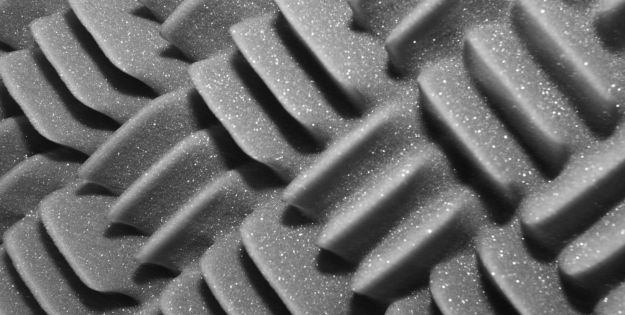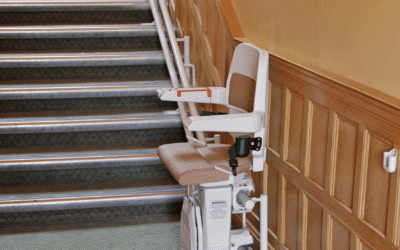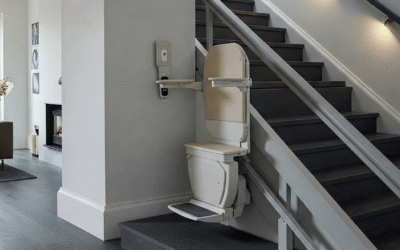In an increasingly noisy world, finding peace and quiet at home or in the workplace can feel like a daunting task. The constant hum of traffic, loud neighbours, or even the chatter of colleagues can disrupt focus and relaxation. Fortunately, effective soundproofing solutions exist to create a tranquil environment, allowing individuals to reclaim their space from unwanted noise.
From simple DIY methods to advanced acoustic panels, the options for soundproofing are diverse and tailored to various needs. Whether it’s a home studio, a bustling office, or a serene bedroom, understanding the best soundproofing solutions can make a significant difference. This article explores top strategies to minimise sound intrusion, enhancing comfort and productivity in any setting.
Top Amazon Sellers
Key Takeaways
- Understanding Soundproofing: Soundproofing techniques are essential for minimising noise intrusion, enhancing peace and productivity in homes and offices.
- Effective Wall Solutions: Materials like mass-loaded vinyl, acoustic panels, and soundproof drywall contribute significantly to soundproofing walls when installed correctly.
- Floor Soundproofing: Strategies such as using sound-absorbing underlays and floating floor systems are crucial for reducing noise transmission from floors.
- Ceiling Considerations: Choosing the right materials, such as acoustic tiles and resilient channels, is vital for minimising noise between floors.
- Windows and Doors: Sealing gaps and utilising heavy curtains or double glazing can greatly enhance soundproofing effectiveness in windows and doors.
- Tailored Approach: Effective soundproofing solutions vary according to individual needs and environments, highlighting the importance of a customised approach to noise reduction.
Understanding Soundproofing
Soundproofing involves techniques and materials used to reduce noise intrusion and improve acoustic comfort. Implementing effective soundproofing solutions enhances peace and productivity in various environments.
What Is Soundproofing?
Soundproofing refers to methods aimed at blocking or reducing sound transmission between spaces. It comprises various techniques designed to decrease noise levels, enhancing tranquillity in settings like homes and offices.
How Does Soundproofing Work?
Soundproofing works by employing barriers and absorptive materials that attenuate sound waves. These solutions disrupt sound travel through mass, density, and strategic placement, effectively minimising noise and creating quieter spaces.
Best Soundproofing Solutions for Walls
Effective soundproofing solutions for walls enhance privacy and tranquillity in both residential and commercial spaces. Various materials and techniques exist to address noise issues effectively.
Types of Wall Soundproofing Materials
Mass-loaded vinyl offers significant sound attenuation due to its high density. Acoustic panels absorb sound waves, reducing echo in rooms. Resilient channels create an air gap, minimising sound transmission. Additionally, soundproof drywall enhances privacy by incorporating sound-dampening properties.
Installation Techniques for Wall Soundproofing
Strategically placing soundproofing materials ensures maximum effectiveness. Staggered stud construction reduces sound paths through walls. Applying multiple layers of drywall increases mass and sound resistance. Caulking gaps and seams prevents sound leaks. Properly sealing electrical outlets and switches further minimises noise intrusion.
Best Soundproofing Solutions for Floors
Effective floor soundproofing reduces noise transmission, creating a quieter environment. Implementing targeted strategies and materials ensures optimal sound insulation.
Strategies for Reducing Floor Noise
Utilising sound-absorbing underlays, installing carpet over hard surfaces, and applying acoustic mats effectively minimise noise. Implementing floating floor systems separates the floor from the substrate, further reducing sound transmission.
Recommended Materials for Floor Soundproofing
Selecting mass-loaded vinyl, rubber flooring, and soundproof carpet underlays enhances soundproofing effectiveness. Incorporating high-density foam and acoustic floor tiles contributes to superior noise reduction and acoustic comfort.
Best Soundproofing Solutions for Ceilings
Ceiling soundproofing is crucial for minimising noise transmission between floors, ensuring comfort in various spaces. Consider the uniqueness of each environment when selecting effective strategies.
Ceiling Soundproofing Considerations
Consider factors such as ceiling height, type of noise, and existing structure when implementing soundproofing solutions. Assess whether the focus is on airborne noise or impact sounds, as the solutions may differ based on these needs.
Effective Materials for Ceiling Soundproofing
Utilise materials designed for efficient sound absorption and blocking. Options like soundproofing panels, acoustic tiles, and resilient channels significantly reduce sound transmission, enhancing overall acoustic performance in the space.
Best Soundproofing Solutions for Windows and Doors
Soundproofing windows and doors plays a crucial role in reducing unwanted noise in any environment. Focusing on effective strategies ensures enhanced comfort and peace.
Importance of Sealing Gaps
Sealing gaps around windows and doors prevents sound escape. It reduces noise intrusion, enhances energy efficiency, and improves indoor comfort. Addressing these gaps can significantly impact overall soundproofing efforts.
Solutions for Soundproofing Windows and Doors
Utilising heavy curtains, acoustic seals, and double glazing provides effective soundproofing solutions. Implementing these methods offers substantial noise reduction, leading to quieter living and working spaces.
Conclusion and Top Picks
Choosing the right soundproofing solutions can transform any space into a peaceful haven. By implementing effective techniques for walls, floors, ceilings, windows and doors, individuals can significantly reduce unwanted noise. The right materials not only enhance comfort but also improve energy efficiency. Investing in soundproofing is a step towards creating a more serene environment that promotes productivity and relaxation. With the variety of options available, everyone can find a solution that suits their specific needs and budget.
Frequently Asked Questions
What are effective soundproofing techniques for walls?
Effective soundproofing techniques for walls include staggered stud construction, using acoustic panels, and applying mass-loaded vinyl. These methods help to absorb and block sound, reducing noise transmission between rooms.
How can I soundproof my ceiling?
To soundproof your ceiling, consider installing soundproofing panels or resilient channels. These materials diminish noise transmission from floors above, creating a quieter environment below.
What should I do to soundproof my windows?
To soundproof your windows, seal any gaps with caulk, and consider using double glazing or heavy curtains. These methods reduce noise intrusion and improve energy efficiency.
How can I soundproof my doors?
To soundproof doors, use weather stripping to seal gaps, install a soundproof door sweep at the bottom, or replace hollow-core doors with solid ones for better noise reduction.
Is soundproofing expensive?
Soundproofing can vary in cost depending on the materials and methods used. DIY solutions can be budget-friendly, while professional installations may require a larger investment, but they can offer better results.












